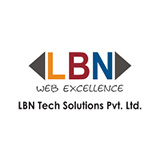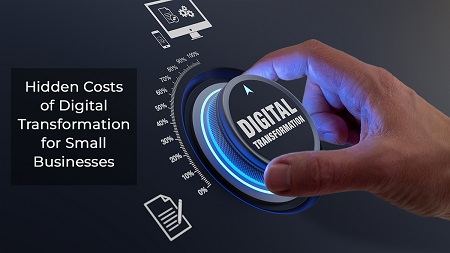Affordable Digital Platforms for Startups: How to Effectively Choose and Use Social Media
 You have launched your dream startup with a revolutionary product, a solid business plan, and a boundless passion for making it work. But the question is – how do you get your product in front of potential customers? You might receive a common answer – social media. But does it work?
You have launched your dream startup with a revolutionary product, a solid business plan, and a boundless passion for making it work. But the question is – how do you get your product in front of potential customers? You might receive a common answer – social media. But does it work?
To answer that question, let’s look at the stats. According to DataReportal, over 4.9 billion people are globally active on social media as of 2024 yet only 30% of small businesses feel they’re effectively using social media to boost visibility. So many startups are missing the mark and how can your business avoid becoming part of that statistics?
Affordable digital transformation services for small businesses: Selecting the right social media platforms
Social media offers an accessible, effective, and affordable launchpad for startups. Each platform has a unique audience and features; you should find strategies to choose and make the platform work for your goal.
1. Know your audience
Before diving into specific social media platforms, determine your startup’s target audience. Do you want to focus on professionals who need productivity solutions, parents seeking child-friendly products, or teens looking for the latest trends? This demographic understanding is the basis of choosing since every platform caters to a different audience.
- Instagram: With over 70% of its users under the age of 35, Instagram is a hub for younger demographics.
- Facebook: It usually has a balanced mix of users across different age groups but is mostly ideal for community-based businesses or targeting people aged 30+.
- WhatsApp: Users of all age groups.
- LinkedIn: Over 60% of its users are aged between 25-34 years. This platform is for networking with leaders, and decision-makers and also for attracting top talent.
- Twitter: Great for startups in tech, media, or businesses that want to target tech-savvy users and shareable quick updates.
- YouTube: Has a vast and varied audience.
2. Define your goals
To create a successful social media strategy for your business, you need to determine specific goals before you move forward. These goals can help you determine your audience and also the type of content you have to create.
- Instagram: Ideal choice if you want to expand your reach among younger audiences, engage customers, and boost your brand reputation.
- Facebook: Best for expanding your reach, building a community, and boosting brand awareness.
- WhatsApp: Excellent for customer support, lead generation, relationship-building, and showcasing products, especially for targeted groups of customers.
- LinkedIn: Excellent for B2B lead generation, especially in professional services and getting insights about your industry or market. Can also be used to drive traffic and boost the brand’s reputation.
- Twitter: Best for engaging customers, providing customer support, and getting real-time insights about public opinions and trends.
- YouTube: The best choice for improving search engine rankings.
3. Take a look at your content
Different types of content perform well with certain social media platforms, so the key is to consider carefully the type of content and the best platform to showcase it on. Here are some content types and the ideal social media platforms to post them on.
- Instagram: Photos, short-form videos, and user-generated content.
- Facebook: Blog posts, photos, testimonials, videos, user-generated content, webinars, live streams and ebooks.
- WhatsApp: Photos, videos, ebooks, podcasts, livestreams, and testimonials (generally not suitable for content marketing).
- LinkedIn: Blog posts, podcasts, webinars, livestreams, ebooks, whitepapers and testimonials.
- Twitter: Podcasts, blog posts, ebooks, and whitepapers.
- YouTube: Long-form videos, podcasts, webinars and livestreams.
Also Read: Small Business Digital Transformation: Benefits and Challenges
4. Check your budget
Any business, particularly startups need to consider the investment when trying to adapt to a new strategy. With social media marketing, effort and time matters the most rather than the budget, at least in the early stages. But if you want to be meticulous and fully planned before stepping into it then here is what you can expect.
- Instagram: You can start with free features like reels but with time move on to influencer marketing and Instagram ads. The ads tend to be on the costlier side, especially for startups.
- Facebook: Ads start from as little as $1 per day thus making Facebook a better choice for businesses with tight budgets. You can use the Meta business suite to manage multiple platforms from one interface without extra costs.
- WhatsApp: Basic features are free to use but options are available if you want to upgrade.
- LinkedIn: Ads are costlier when compared to other platforms.
- Twitter: You can join trending topics without ad spend but tweets tend to lose visibility quickly thus making it important to regularly post content.
- YouTube: If you are considering marketing merely through content then regular posting is mandatory and you can build an audience without any initial ad spend. When it comes to ads, YouTube can get costly.
Choosing the right social media platform for marketing can never depend on one factor. You will need to consider all and then adopt different strategies depending on your needs at the particular time. As mentioned earlier, a great social media marketing strategy requires time, and as startup owners, you might lack that the most. In that case, hiring experts or marketing companies can make the job easier for you.
LocalBizNetwork
If your startup needs online visibility the most and you are looking for ways to reach your target audience then LocalBizNetwork is here for you. With LBN business listing, you could not only rank the SERPs but also use them for content marketing. Know more about what we have to offer you by visiting our site here.
Frequently Asked Questions
How do I choose the right social media platform for my startup?
The best platform depends on your target audience. For younger demographics, Instagram is ideal. For professionals, LinkedIn works best, while Facebook is great for building a community. Understand your audience and tailor your choice accordingly.
Can social media really help my startup grow?
Yes, social media offers an affordable and accessible way to reach large audiences, build brand awareness, and engage with potential customers. It’s especially effective when used strategically.
What type of content should I post on each platform?
Instagram: Photos, short-form videos, and user-generated content.
Facebook: Blog posts, photos, videos, webinars, live streams.
LinkedIn: Blog posts, podcasts, webinars, whitepapers.
Twitter: Short updates, blog posts, and real-time news.
YouTube: Long-form videos, webinars, and podcasts.
What budget should I allocate for social media marketing as a startup?
Start with free features like organic posts and gradually invest in ads as needed. Platforms like Facebook and Instagram allow for small ad budgets, while LinkedIn and YouTube tend to be more expensive. Consider starting with organic reach before using paid ads.
How do I effectively engage my audience on social media?
Engage by posting consistently, responding to comments, running polls, sharing user-generated content, and joining relevant conversations. Tailor your content to the platform and audience to keep them engaged.
Should I handle social media marketing myself or hire an expert?
If you lack time or expertise, hiring a marketing professional can help ensure that your strategy is executed effectively. This allows you to focus on running your business while experts handle the intricacies of social media marketing.
How can LocalBizNetwork help my startup with social media marketing?
LocalBizNetwork offers business listings that help improve your online visibility and SEO rankings. These can be used in content marketing strategies to attract your target audience and boost your brand’s presence.
- Nov 28, 2024






